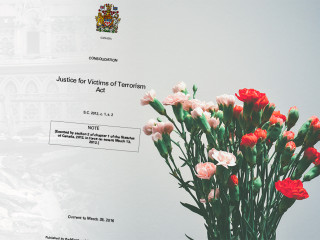Full Decision
Insurer Examiner’s evidence found inadmissible due to insurer’s non-compliance with Section 44 of the SABS.
The Applicant, C.B., was injured in an automobile accident and claimed accident benefits from Allstate. The applicant filed an Application with the Licence Appeal Tribunal when Allstate denied various benefits and entitlements, with the main issue being whether C.B. was catastrophically impaired.
The Applicant brought the motion in advance of the Hearing to exclude the evidence of the insurer examiner as it relates to an in-person examination that was conducted. The Applicant submitted that the insurer had not complied with s. 44(5)-(9) of the SABS when arranging for the assessment to take place because the statutory notice provided was erroneous. As a result, the Applicant argued that any evidence arising from the insurer examiner’s clinical interview of the Applicant, including any neuropsychological testing, ought to be excluded.
In this matter, the Insurer had scheduled an IE with its neuropsychologist and provided notice to the Applicant that the examination was to be a “paper review” and that the Applicant was “not required to attend the examination”. However, a car was sent by the insurer to pick up the Applicant, and the Applicant attended an in-person IE which produced a neuropsychological report.
Allstate argued that its notices of examinations were compliant with the SABS, and in any event, that the evidence was relevant and should not be excluded on technical grounds.
The Tribunal did not agree and held that the Schedule’s mandatory language regarding notice requirements are clear, that Allstate’s notice was deficient, and that “there could not have been any more flagrant non-compliance with s. 44(5) than this”.
In its decision, the Tribunal focused heavily on the violation of s. 44(9)(2)(ii), which as a result of the deficient notice, prejudiced the Applicant by denying him, or his counsel, the opportunity to provide relevant and necessary information to the insurer examiner no less than five days before the scheduled examination.
The Tribunal went on to state that “the Schedule must be followed, particularly regarding mandatory notice obligations to give claimants certain information ensuring fairness in the scheduling of IEs. When it is not followed, there should be real consequences”.
The Tribunal also held that admitting the impugned “evidence would not instill public confidence and a sense of fairness in these proceedings as it was obtained without proper notice to the insured. Fairness is fundamental to any administrative law process. Allowing the evidence would not result in a fair process. This was an egregious breach of the notice provisions in the Schedule and it would be manifestly unfair for the respondent to reply on that evidence.”














